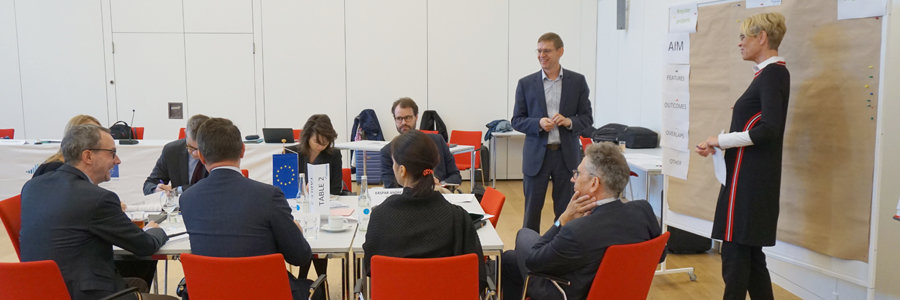Along with the two-third of Interreg Baltic Sea Region projects still ongoing, the preparations for the future programme 2021-2027 are already taking shape.

©IB.SH/Robert Schulz
Joint Programming Committee
So far, the present Interreg Baltic Sea Region’s Monitoring Committee’s Task Force worked on the preparation of the successor programme post 2020. As from the end of the year, a formal „Joint Programming Committee“ (JPC) will take over. Main responsibilities of the JPC will include the final selection of the future thematic priorities as well as the allocation of funds to those priorities. The first JPC meeting is planned for 5-6 February 2020 under the Latvian chairmanship.
The JPC will start working although the EU’s legislative package including the financial envelopes have not yet been agreed in the “Trilogue” involving the Commission, the European Parliament and the European Council. Also the final official list of future Interreg programmes in the area is still missing. The revised Action Plan of the EU Strategy for the Baltic Region (EUSBSR) is also facing delays. But some advancements are in sight. By the end of October 2019, the European Commission will publish an “Orientation Paper” for the future Interreg Baltic Sea Region Programme that would guide the preparation of both, thematic priorities as well as links to the EUSBSR.
How to get involved?
A team of external experts of Ramböll Consulting will assist the JPC as well as the Managing Authority/Joint Secretariat to identify the right priorities for transnational cooperation in the Baltic Sea Region. Available pan-Baltic, national and regional strategies will be analysed. It is planned to launch a survey to national and regional ERDF managing authorities to find out what will be supported at national level, and how to link up with Interreg Baltic Sea Region. Public consultation rounds will follow during 2020. It became already clear during the Task Force session held on 25-26 September 2019 in Potsdam that the future Programme will focus on implementing practical solutions that benefit regional development in the Baltic Sea region, and that citizens understand and appreciate.






